John Lucas - 92 Acharnon Street
Here you can read online John Lucas - 92 Acharnon Street full text of the book (entire story) in english for free. Download pdf and epub, get meaning, cover and reviews about this ebook. year: 2009, publisher: Eland Books, genre: Detective and thriller. Description of the work, (preface) as well as reviews are available. Best literature library LitArk.com created for fans of good reading and offers a wide selection of genres:
Romance novel
Science fiction
Adventure
Detective
Science
History
Home and family
Prose
Art
Politics
Computer
Non-fiction
Religion
Business
Children
Humor
Choose a favorite category and find really read worthwhile books. Enjoy immersion in the world of imagination, feel the emotions of the characters or learn something new for yourself, make an fascinating discovery.
- Book:92 Acharnon Street
- Author:
- Publisher:Eland Books
- Genre:
- Year:2009
- Rating:3 / 5
- Favourites:Add to favourites
- Your mark:
- 60
- 1
- 2
- 3
- 4
- 5
92 Acharnon Street: summary, description and annotation
We offer to read an annotation, description, summary or preface (depends on what the author of the book "92 Acharnon Street" wrote himself). If you haven't found the necessary information about the book — write in the comments, we will try to find it.
92 Acharnon Street — read online for free the complete book (whole text) full work
Below is the text of the book, divided by pages. System saving the place of the last page read, allows you to conveniently read the book "92 Acharnon Street" online for free, without having to search again every time where you left off. Put a bookmark, and you can go to the page where you finished reading at any time.
Font size:
Interval:
Bookmark:
For my grandchildren,
Amanda, Sam, and Macayla
Possess, as I possessed a season,
The countries I resign
A E Housman
The publishers would like to thank Pamela Browne for permission to reproduce her photographs here. They were all shot in Athens in the late 70s and early 80s, either on assignment or as a flneur. This is the first time that these images have been published.
Other countries may offer you discoveries in manners or love or landscape; Greece offers you something harder the discovery of yourself.
Lawrence Durrell, Prosperos Cell
T WO THOUSAND years ago, the poet Ovid was banished from Rome for upsetting Augustus Caesar. Quite what he had done to displease his emperor remains obscure, though the likeliest explanation is that something in Ars Amatoria prompted the imperial edict. Whatever the cause, Ovid was banished to Tomis on the west bank of the Black Sea. From there, in shock and bitter disappointment, he wrote his Tristia, describing the tedious years of exile and his boredom in an uncouth land. But if he hoped that this would soften Augustuss obduracy, he was wrong. He was still in exile when he died, in AD18. Nothing he said could change Augustus mind, not even the claim that he, Ovid, was a Roman through and through and that, while you could change the skies under which a man lived, you couldnt change his soul.
I was forty-seven years old when, in August 1984, I began a year of living in Athens. From early adulthood Id wanted to go to Greece, but for a variety of reasons every plan fell through, and during the infamous period of the colonels junta (1967-74) visiting the country was simply not an option. Then, early in 1984, came an invitation to spend the academic year 1984-5 as visiting professor in the English department at the University of Athens. The details of how this came about and its consequences I leave until later. Here, I want to say only that the twelve months I spent living in Athens, while they may not radically have changed me, uncovered possibilities which, but for that year, might have remained hidden.
This is by no means to say that I approved of everything I found there. Bureaucracy, of which I encountered all too much, was, as it remains, a nightmare. Nothing was ever done as and when it should have been. Half the time you couldnt even locate the official who was supposed to deal with whatever case you were required to present to him. Either you had just missed him or he would be in tomorrow. (Oh, no, he wouldnt.) And if you did track him down, he would tell you that you had the wrong documentation. But this is what I was told to bring. A dismissive shrug. You must apply to Mr X. But Mr X told me I must apply to you. A further shrug.
Much later, the poet and translator, Philip Ramp, tried to explain Greek bureaucracy to me. Philip and his wife Sarah, Americans who came to Greece in the late 1960s, are long-term residents on the island of Aegina, where my wife and I now have a small rented flat, and over the years weve become good friends. As well as making excellent translations of Greek poets, Philip has done much bread-and-butter work for Greek officialdom. He therefore knows more than most about the ways of the nations bureaucracy, and has no doubt as to why it is so uniquely awful. In every other country, Phil says, bureaucrats are likely to be soulless, but after all theyre not paid to have souls. Theyre paid to be efficient. And for the most part they are. You may not like them but they get the job done. They take pride in their work. But in Greece, nobody wants to be a bureaucrat. You go to see one and hes not interested in discussing the reason youre there. He wants to talk to you about poetry or art or music. And you know what, hes almost certain to have a slim volume in his bottom drawer just waiting for a publisher. Hell be OK as long as you keep to every subject but the one you came to him about, but as for the goddam money youre owed by his department, or the piece of paper you need to get some work done, forget it.
That Philip is right about this, I discovered not merely from my own experiences but from a tale told to me by the artist, Andreas Foukas. Just after he had gone to live on Aegina, Andreas took his car down to the port, left it while he did some shopping, and when he came back found he had been ticketed for illegal parking. Given that the police of Aegina are hardly ever to be spotted on the streets (although you can sometimes glimpse them at a waterfront ouzerie), this was a rare piece of bad luck. However, seeing the policeman nearby who had, he assumed, issued the ticket, Andreas went up to him and, as is the Greek way, began a lengthy explanation, amounting to an apologia, not to say exculpation, as to why hed parked in the wrong place, stressing the fact that he was new to the island and that he would be certain not to transgress a second time. He also took care to lob in some compliments to the island and to its officials, including, naturally enough, its police force. After about twenty minutes of this the policeman tore up the parking ticket, and the two men, having shaken hands, went their separate ways.
Two weeks later Andreas drove down to the port town, parked in exactly the same spot and, when he returned from his shopping, found the same policeman waiting for him. This time there was to be no reprieve. Andreas had gone back on his word and now he was for it. Well, perhaps he could plead his case with the inspector? You can try, the now less-than-friendly policeman told him, but you will not succeed. He marched Andreas to the police station, where they found the inspector (asleep at his desk, so Andreas told me), the policeman reported Andreass two transgressions, and Andreas was then left to confront the inspector. As the policeman had forewarned, the inspector was not a man to be trifled with. Illegal parking was a most heinous crime and punishment would be exacted. Why, anyway, had Andreas dared to repeat the offence?
I was in search of canvas and paint.
You are an artist?
Yes, Andreas said, he was an artist.
A pause. The inspector, it transpired, was himself an artist. He would value Andreass opinion of a small water-colour he had recently finished and which he happened to have with him. The painting was produced, Andreas offered his professional judgement, much talk on subjects relating to art followed, and at the end of an hour the inspector and Andreas shook hands.
And my parking ticket? Andreas asked, as he made for the door.
Please to give it here. The ticket was torn in half and dropped into the waste paper basket.
I told this story to another Greek friend, George the hairdresser, who also lives on the island. For thirty years George made his money by cutting hair in High Wycombe, and then, with money he had carefully saved, he and his wife Nikki, both originally from Cyprus, came to Aegina and built a house there. Not long after we had got to know them, and when the house was gleamingly new, we were invited to look it over. In the living-room I noticed a framed letter from a royal hanger-on of the house of Windsor, thanking George for his poem on the birth of Charles and Dianas first son. So George was a poet? Occasionally, he said, but it was not a major preoccupation. When he was not cutting islanders hair, or acting as guide to anyone who wanted to visit the dormant volcano on Methena (which faces across to Aegina from the mainland), or tending the gardens of the newly finished, ambitious monastery of Nektarios in the middle of the island, or helping out on his brothers fruit farm on the far side of Aegina, or doing a thousand and one other things, he liked to fill his spare time by building model boats. When he told me about this I at first thought he meant ships in bottles. But then he took us to see them. I could hardly have been more wrong. Over the years George has constructed some forty large-scale models of boats that between them comprise a history of Greek maritime life, from ships that sailed to destroy Troys topless towers, through trading vessels of the classical period, Phoenician and Roman as well as Greek, to latter-day merchant ships. And not merely the vessels themselves. There are lovingly-made model cranes, blocks-and-tackle, bales, boxes, men and pack animals at work. For a while George set up a small museum in fact a vacant shop in Agia Marina, the unattractive pleasure-town on the far side of the island, but then a sudden and wholly unreasonable tax demand forced him out. For him island bureaucracy is a nightmare from which it is impossible to wake. Now the ships are kept in the basement of a second house hes built at Alones (the word means threshing floor), a village not far from Agia Marina, and he shows people his exhibition for free, talking them through Greek history as he does so, especially the history of Greek seafaring. It isnt what youd expect of an English hairdresser. It is, though, what I have come to expect of many Greeks I know.
Font size:
Interval:
Bookmark:
Similar books «92 Acharnon Street»
Look at similar books to 92 Acharnon Street. We have selected literature similar in name and meaning in the hope of providing readers with more options to find new, interesting, not yet read works.
Discussion, reviews of the book 92 Acharnon Street and just readers' own opinions. Leave your comments, write what you think about the work, its meaning or the main characters. Specify what exactly you liked and what you didn't like, and why you think so.














